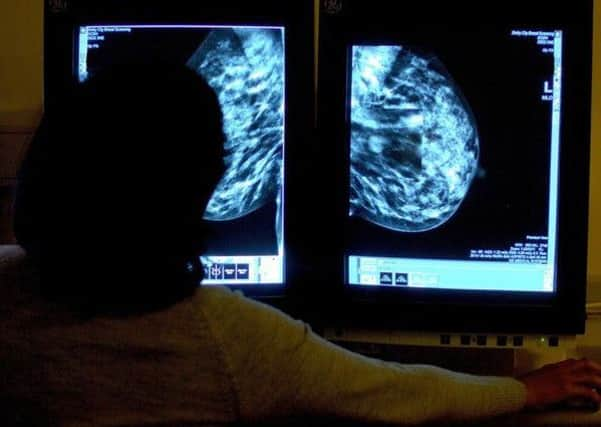Thousands of Blackpool women fail to respond to invitation for breast cancer screening


Women are invited for a breast screening every three years between the ages of 50 and 70, to try to catch cancer early.
But, “troubling” figures show the proportion of women accepting the invitation is declining.
Advertisement
Hide AdAdvertisement
Hide AdOnly 64 per cent of the 23,180 women in the Blackpool Clinical Commissioning Group area due a screening in the three years to the end of March took up the offer.
This means 8,338 women are not up to date with their checks.
The data measures how many eligible women were checked at least once in the three year period, meaning some women could be years overdue.
Across England the proportion of women who attended their last check was 72 per cent.
Advertisement
Hide AdAdvertisement
Hide AdOf those who were sent an invitation in the 12 months to March, just 70.5 per cent had attended within six months of their invite, according to NHS Digital.
This is the lowest level since the current screening programme began in 2007.
The UK National Screening Committee says the minimum acceptable level of coverage is 70 per cent, but the NHS is expected to achieve 80 per cent.
Addie Mitchell, clinical nurse specialist at the charity Breast Cancer Care, said: “Uptake of routine screening invitations in England has been gradually slipping year-on-year.
Advertisement
Hide AdAdvertisement
Hide Ad“These troubling figures show we’re now only a hair’s breadth above the minimum standard.
“While screening is not a one-stop shop, as symptoms can occur at any time, mammograms remain the most effective tool at our disposal for detecting breast cancer at the earliest possible stage.”
Almost a third of the 260 CCGs in England failed to meet the minimum target, while only one managed to pass the 80 per cent benchmark. Uptake in Blackpool bucked the national trend last year, rising from 58.4 per cent in 2016-17.
However, it has still fallen from a peak of 67.6 per cent in 2010-11. Detecting cancer early on gives a better chance of survival.